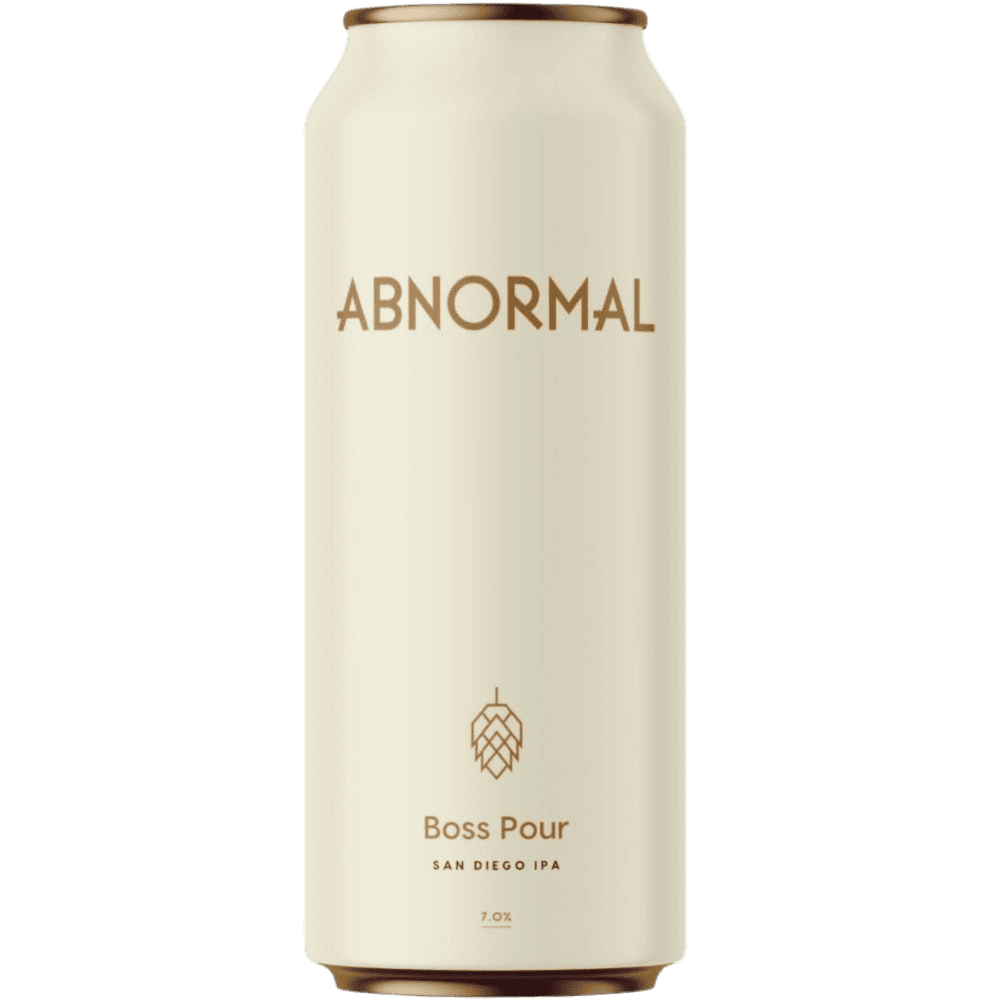
Abnormal Boss Pour IPA Beer
Abnormal Boss Pour IPA Beer
Unleash the boss within with every sip of Abnormal’s flagship West Coast Style IPA, Boss Pour. This exceptional brew stands out with its vibrant golden hue and an aroma that commands attention, boasting a heavy dankness that’s detectable from afar. The palate is greeted with an assertive bitterness that’s perfectly offset by a medley of juicy citrus and tropical notes, culminating in a finish that’s as satisfying as it is memorable. Whether you’re winding down from a long day or gearing up for an evening of relaxation, Boss Pour is the ultimate companion, promising a taste experience that’s nothing short of extraordinary.
Product Details:
- Type: American IPA
- Volume: 16oz (473ml)
- Finish: Crisp with a lingering hop bitterness
- Profile: A symphony of bright citrus and pine, with notes of grapefruit, tropical fruit, and a touch of dankness
- Craftsmanship: Crafted with a blend of Pacific Northwest hops including Cascade, Simcoe, Nugget, Citra, and Mosaic, balanced by American 2-row and English specialty base malts
Remember: Drinking distilled spirits, beer, coolers, wine, and other alcoholic beverages may increase cancer risk, and, during pregnancy, can cause birth defects. For more information, visit www.P65Warnings.ca.gov/alcohol.

Explore a World of Spirits and Liquor through our Comprehensive FAQ Section.
Discover a World of Spirits and Liquor in our Helpful FAQ Section.
Types of Spirits
- Whiskey: Made from fermented grain mash and aged in wooden casks.
- Vodka: Typically distilled from grains or potatoes and known for its clear, neutral flavor.
- Rum: Produced from sugarcane byproducts like molasses or sugarcane juice.
- Tequila: Made from the blue agave plant, primarily in the area surrounding Tequila, Mexico.
- Gin: Distilled with botanicals, primarily juniper berries, giving it a distinctive flavor.
Production Process
- Fermentation: The process where yeast converts sugars into alcohol.
- Distillation: Separating alcohol from the fermented mixture to increase its concentration.
- Aging: Storing spirits in barrels to develop flavors over time.
Tasting and Pairing
- Tasting Notes: Learn to identify different aromas, flavors, and textures.
- Food Pairings: Discover which spirits complement various dishes, enhancing the dining experience.
Cocktails and Mixology
- Classic Cocktails: Recipes and techniques for making popular drinks like the Old Fashioned, Martini, and Mojito.
- Mixology Tips: How to balance flavors and create your own cocktail recipes.
History and Culture
Origins: The historical background of different spirits.
Cultural Significance: How spirits are enjoyed and celebrated around the world.

